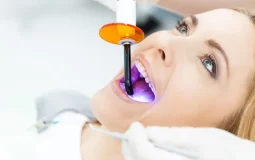When it comes to enhancing your home’s garage, one of the most impactful upgrades you can make is selecting the best garage floor coating.
A high-quality coating not only improves the aesthetic appeal of your garage but also provides durability, protection, and easy maintenance. With various options available, choosing the right floor coating can be a daunting task.
Whether you’re looking to transform your garage into a sleek showroom or a durable workspace, the right coating can make all the difference.
Best Garage Floor Coating for Your Home

In this article, we will explore the best garage floor coating options, detailing their benefits, drawbacks, and ideal applications.
From epoxy and polyurethane to acrylic and rubber tiles, understanding the characteristics of each type will help you make an informed decision that meets your needs and enhances your garage’s functionality and appearance.
1. Epoxy Coating
Durability and Versatility
Epoxy is one of the most popular and best garage floor coatings due to its exceptional durability and versatility.
This two-part coating consists of a resin and a hardener that, when mixed, create a strong, chemical-resistant surface.
Benefits:
- Durability: Epoxy coatings are highly resistant to abrasions, stains, and chemicals, making them ideal for heavy-duty use.
- Aesthetic Appeal: Available in various colors and finishes, including glossy, metallic, and textured options, epoxy can enhance the visual appeal of your garage.
- Easy Maintenance: Epoxy floors are easy to clean and maintain, requiring only regular sweeping and occasional mopping.
Drawbacks:
- Preparation Time: Proper surface preparation is essential for epoxy application, which can be time-consuming and labor-intensive.
- Curing Time: Epoxy coatings require a significant curing period, often taking several days to fully harden.
Ideal For: Garages used as workshops, showrooms, or spaces with high traffic and heavy use.
2. Polyurethane Coating
Flexibility and UV Resistance
Polyurethane coatings are known for their flexibility and resistance to UV rays, which makes them less likely to yellow over time compared to epoxy.
Benefits:
- UV Stability: Unlike epoxy, polyurethane does not yellow when exposed to sunlight, maintaining its appearance over time.
- Flexibility: Polyurethane’s flexibility allows it to absorb impacts better and resist cracking.
- Chemical Resistance: Offers excellent resistance to chemicals, oils, and solvents.
Drawbacks:
- Cost: Generally more expensive than epoxy coatings.
- Application: Requires multiple coats and precise application techniques for the best results.
Ideal For: Garages exposed to direct sunlight, high-impact areas, and spaces requiring a more flexible surface.
3. Acrylic Coating

Ease of Application and Quick Drying
Acrylic coatings are water-based solutions that provide a fast-drying and easy-to-apply option for garage floors.
Benefits:
- Quick Drying: Acrylic coatings dry quickly, allowing for faster project completion.
- Ease of Application: Can be applied with minimal surface preparation, making it a user-friendly option for DIY projects.
- Cost-Effective: Generally more affordable than epoxy and polyurethane coatings.
Drawbacks:
- Durability: Less durable than epoxy or polyurethane, making it less suitable for heavy-duty use.
- Maintenance: Requires more frequent maintenance and reapplication to maintain its appearance and protection.
Ideal For: Light-use garages, homeowners looking for a quick and easy DIY solution, and budget-conscious projects.
4. Rubber Tiles
Comfort and Safety
Rubber tiles offer a unique alternative to liquid coatings, providing a cushioned and non-slip surface that is ideal for safety and comfort.
Benefits:
- Comfort: Rubber tiles provide a cushioned surface that is comfortable to stand on for long periods.
- Safety: The non-slip surface reduces the risk of slips and falls, enhancing safety in the garage.
- Easy Installation: Tiles are easy to install and can be replaced individually if damaged.
Drawbacks:
- Cost: High-quality rubber tiles can be more expensive than other flooring options.
- Appearance: May not offer the same sleek, polished look as epoxy or polyurethane coatings.
Ideal For: Home gyms, play areas, and garages used for activities requiring a cushioned, safe surface.
5. Concrete Sealer
Protection and Enhancement
Concrete sealers are clear coatings applied to concrete floors to enhance their appearance and protect them from stains, moisture, and wear.
Benefits:
- Moisture Resistance: Sealers protect concrete from moisture penetration, reducing the risk of mold and mildew.
- Easy Application: Simple to apply with a roller or sprayer, making it a good option for DIY projects.
- Natural Look: Enhances the natural appearance of concrete while providing protection.
Drawbacks:
- Limited Durability: Offers less protection against heavy impacts and chemical spills compared to epoxy or polyurethane.
- Maintenance: Requires periodic reapplication to maintain effectiveness.
Ideal For: Homeowners looking to preserve the natural look of their concrete floor while adding a layer of protection.
Conclusion
Choosing the best garage floor coating for your home involves considering factors such as durability, appearance, ease of application, and maintenance requirements.
Epoxy coatings offer exceptional durability and aesthetic options, while polyurethane provides flexibility and UV resistance.
Acrylic coatings are ideal for quick and easy application, and rubber tiles provide comfort and safety. Concrete sealers enhance and protect the natural look of concrete floors.
By understanding the benefits and drawbacks of each option, you can select the best garage floor coating to meet your specific needs and transform your garage into a functional and stylish space.








